Amnesty casts critical eye over Switzerland
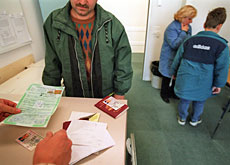
Amnesty International has condemned tighter Swiss immigration and asylum laws in its annual report on global human rights.
The organisation also criticised a domestic violence law, which leaves migrant women at risk of deportation, and highlighted a UN report that found evidence of institutional racism within the police force.
However, Switzerland – unlike neighbouring Germany, France and Italy – escaped censure for its role in the “extraordinary renditions” saga and other abuses linked to the US-led “war on terror”.
This was despite the conclusions of Dick Marty, a Swiss senator appointed by the Council of Europe in November 2005 to investigate claims that the CIA had set up secret prisons in eastern Europe.
Marty reported in June 2006 that 14 European countries had colluded with the US in a “spider’s web” of human rights abuses. He said other countries, including Switzerland, had been involved actively or passively in the detention or transfer of unknown persons.
Immigration issues
Amnesty’s main charge against Switzerland focused on its tough immigration laws. In September 2006 two-thirds of voters backed new laws on immigration and asylum, which the government said were necessary to make Switzerland less attractive and to curb abuses.
“I don’t think the Swiss are xenophobic but they don’t agree with [asylum] abuse,” Amnesty’s refugee coordinator Denise Graf told swissinfo at the time. “This ended up being a major feature of the campaign and made the difference. But it’s not really as big an issue as has been made out.”
Under the new asylum law, those who failed to produce valid travel and identification documents within 48 hours would be rejected. Asylum seekers who refused to leave the country could be detained for up to two years pending deportation.
They would also lose the right to social security benefits and could only receive emergency aid of SFr960 ($780) a month.
Minors could also be detained for up to one year – “in contravention of international standards”, according to Amnesty’s 2007 report, published on Wednesday.
For its part, the Federal Migration Office strongly rejected the charges. Spokesman Dominique Boillat told swissinfo that Amnesty had, quite simply, got it wrong.
“We reject the majority of Amnesty’s findings because they are incorrect,” Boillat said.
“Amnesty seems to have forgotten that those who apply for asylum without the correct papers can benefit from… exceptions,” he stressed.
These included the opportunity to justify why they were applying without the required documents and to demonstrate they had been persecuted in their home country.
Domestic violence
Amnesty also noted figures from the Federal Statistics Office in October indicating that around 28 women die each year in Switzerland as a result of domestic violence.
It welcomed parliament’s decision in June to amend the civil law permitting the expulsion of the aggressor from the shared home if requested by the victim of domestic violence.
However, the organisation pointed out that migrant women living in Switzerland for less than five years remained vulnerable to expulsion if they stopped cohabiting with the partner named on the residence permit.
The Migration Office denied this.
“An immigrant in this position would be entitled to her own permit if violence was taking place in the marital home,” Boillat said.
Institutionalised racism
The third issue highlighted in the report was that of racism within Switzerland.
In March 2006 the Swiss government found itself having to answer a hard-hitting report by Doudou Diène, the Senegalese United Nations special rapporteur on racism, which accused Switzerland of racist tendencies.
Diène noted that racism, xenophobia and discrimination were “trivialised” in political debate in Switzerland.
He also observed strong evidence of institutional racism, including within the police. Allegations continued of ill-treatment, excessive use of force and racist abuse by police officers, and of subsequent impunity for the perpetrators.
The government rejected Diene’s use of “individual incidents to draw conclusions about the general dynamism of racism and xenophobia in the country as a whole”, but said it would seriously examine the report and would step up efforts to combat racism and discrimination.
swissinfo
AI was founded in 1961 by British lawyer Peter Benenson.
AI was awarded the Nobel Peace Prize in 1977 for its campaign against torture.
According to its 2007 report, AI has 2.2 million members or supporters in more than 150 countries.

In compliance with the JTI standards
More: SWI swissinfo.ch certified by the Journalism Trust Initiative
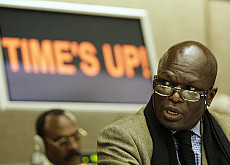
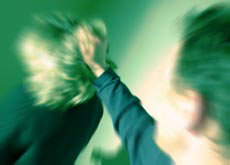
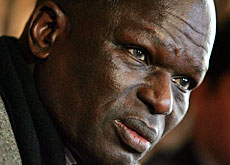
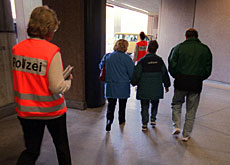
You can find an overview of ongoing debates with our journalists here. Please join us!
If you want to start a conversation about a topic raised in this article or want to report factual errors, email us at english@swissinfo.ch.